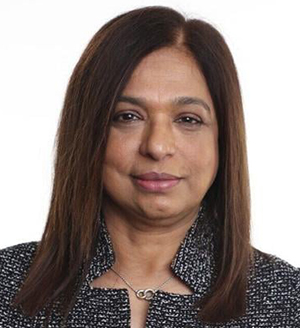IHCS plays ‘critical role’
By Liz Beaulieu, Editor
Updated 8:35 AM CST, Wed November 27, 2024
 MIRAMAR, Fla. – Ajani Nimmagadda, MD, says her passion for helping patients with complex health issues get the care they need in a highly fragmented health care system will guide her as the new chief medical officer of Integrated Home Care Services.
MIRAMAR, Fla. – Ajani Nimmagadda, MD, says her passion for helping patients with complex health issues get the care they need in a highly fragmented health care system will guide her as the new chief medical officer of Integrated Home Care Services.
IHCS, an independent benefit manager of home health, DME and home infusion services, announced in October that Nimmagadda, who previously held a variety of leadership roles at Cigna Healthcare, had joined their team.
Here’s what Nimmagadda had to say about the beauty of care coordination, the true benefit of technology, the importance of metrics and the future of care in the home.
HME News: Benefits managers are sometimes called an unnecessary middleman between health plans, providers and members. What do you see as their role?
Ajani Nimmagadda: We work with multiple different health plans and lines of business – think about Medicare Advantage, managed Medicaid, commercial, individual exchange plans – and commit to taking care of their members and patients at home, whether they need HME or physical therapy or infusion. It’s one stop. We feel like that’s a critical role – integrating all the pieces to accomplish the goal of keeping the patient home and reducing their burden, and increasing efficiency in the system to reduce overall costs.
HME: Why is care coordination so important for post-acute care, in particular?
Nimmagadda: Right now, for example, when patients go home, they go home with a bunch of scripts. So, a goal of ours is medication reconciliation in a much more methodical way. A patient may not be able to fill their scripts because the formulary of their plan is different, and they don’t know who to call. Is it the hospitalist or the PCP who hasn’t seen them? These are pain points that we’re keenly aware of and that result in readmissions. So, the goal is creating those clinical connection points between the nurse and the pharmacist, working with the health plan and the prescriber. That requires technology and a lot more capabilities.
HME: Talk more about the role of technology in coordinating care.
Nimmagadda: One of the critical factors of our success is our MedTrac Home Care Insights and Outcomes Platform. It helps to be in one simple system – there is the ability for prescribers and home health agencies to submit electronically; there is the ability for the DME provider to access records electronically. You can see that a patient got a nursing visit; you can see if they got their supplies distributed. It’s very pivotal to coordinated care.
HME: Some tech advancements can be viewed negatively, especially when they’re used to determine medical necessity.
Nimmagadda: There is a lot of negativity around that, but I see the role of AI not in providing patient care and denying things but for improving turnaround time, automating the process of entering faxes into the record of the patient, completing forms – things like this. This way providers can spend more time with patients and less time on paperwork.
HME: The HME space, in particular, has a lack of standardized metrics. How do you determine the success of the providers in your network?
Nimmagadda: When we think about our network, it’s important to hold providers to turnaround time. When a patient is sent home with oxygen, it needs to be delivered before they are home. That’s where we come in because it is harder for a payer to maintain that level of oversight. We also want to make sure providers are submitting clean claims on behalf of the patient and we track patient complaints and review them.
HME: How do you see care in the home growing – and IHCS along with it?
Nimmagadda: I think we all know our population is aging. By 2050, one in five individuals will be more than 65. It’s becoming more and more important and there are so many initiatives out there, like hospital at home, that show care is shifting to the home. Seniors in the home need to stay healthy and self-sufficient and as independent as possible for as long as possible – at home. We’re catering to this space and creating value in this space.
Comments